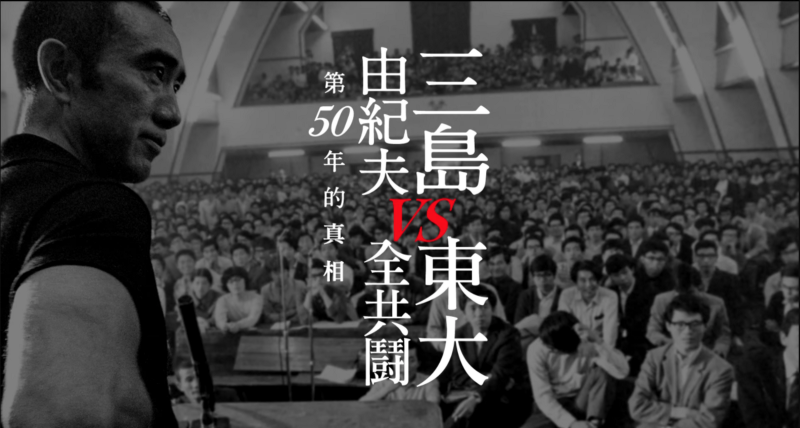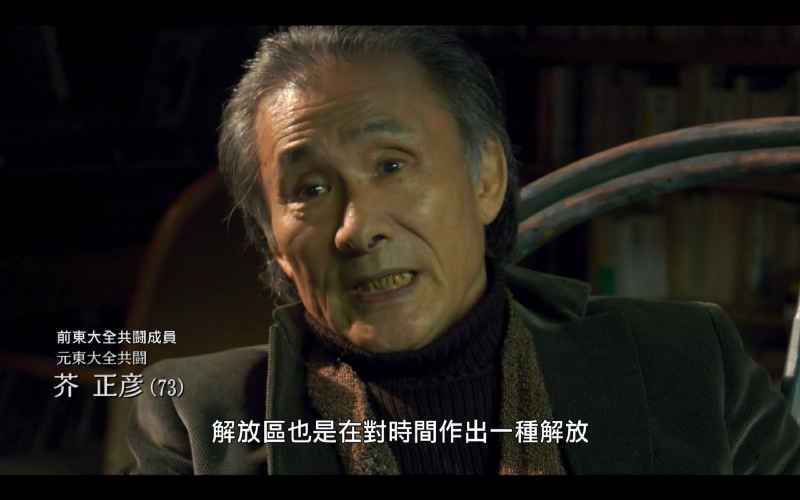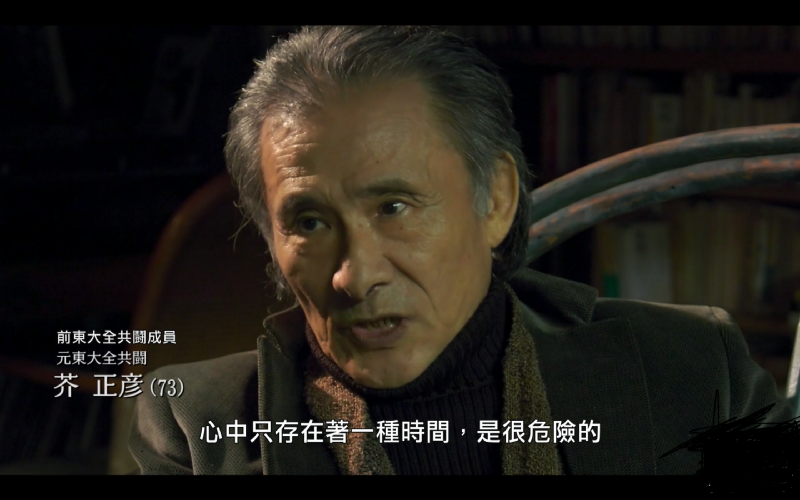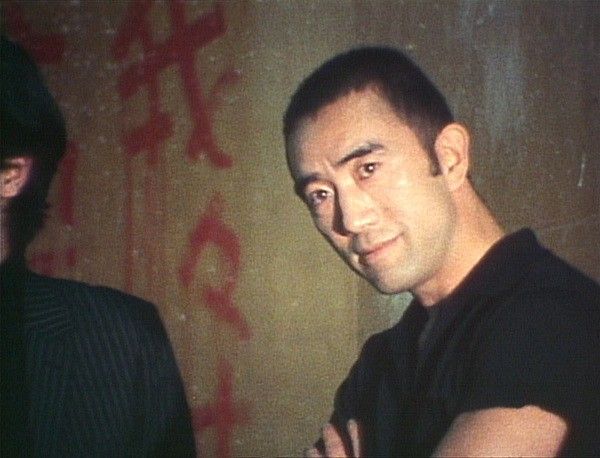
畢業於中正大學心理和哲學系,現就讀陽明交通大學社會與文化研究所。曾在關鍵評論網擔任書評專欄作者。文章主要投稿、刊登於 香港 微批paratext 或 虛詞.無形網站,多為文學、哲學類性質。另也有動漫評論發表於U-ACG。 信箱:f0921918962@gmail.com 信箱:f0921918962@gmail.com
"Mishima Yukio vs Todaidai Kota": Building Relationships and Confronting Others' "Language" Argument
Thank you words. Publish this article invisibly
Link: https://p-articles.com/critics/2864.html

"Mishima Yukio vs Todaidai Kota" is a very exciting documentary. Many people want to stop when watching it, not necessarily thinking about it for a while, but at least I want to let the feeling settle before continuing to watch it. the whole debate. However, when I watched it for the first time, I was not so moved and shocked, but more like a bigger hole was dug. I felt that the focus had been on the dead Yukio Mishima. It's a pity that I didn't hear more of the thoughts of those who stayed behind.
I think the reason why most people watch this movie is because of the relationship between the writer Yukio Mishima? But in the end, the most rewarding thing for us in this film may be to know the person and his thoughts. And the most impressive segment of this film is also the dialogue between Musta Masahiko and Mishima.
In this conversation, Mishima asked Aura Masahiko two questions. First, how do people build relationships without giving them names? That is, is there a relationship without a name? Or should I say, if a relationship has no name, can the relationship still maintain its own continuity? Second, there are often various "uses" between people. Without these "uses", it would be difficult for people to establish so-called relationships, because these "uses" are the "purpose" of establishing relationships between people. Are there any "uses" in these established relationships that do not contain any "teleological"? That is, is there a relationship that has no purpose?
This question and dialogue is undoubtedly the real core of the dialogue "Yukio Mishima vs. Todaidai Kota". It can also be regarded as one of the meanings of the Todai Kotsu Movement, that is, how to re-establish the relationship between people? It's not a debate between the left and the right.
As for "how to build relationships between people", Mishima's answer is "the emperor" and "the Japanese", because for him, the belief in the emperor and the national belief of "the Japanese" are powerful for organizing people from different social strata. Tools, even if he knows that the "emperor" and "Japanese" in his mind are very different in the imagination of ordinary people, but in order to make people support themselves and resist the current state system together, the "emperor" and "Japanese" are very different. The national image of ' is a necessary 'use' to establish a relationship with each other, and he criticized the students of the Eastern University as the same as himself, using the identity of the 'emperor' and 'Japanese' to gain public support (Even if they are critical of the emperor's beliefs and Japan's national identity).
The Japanese writer Keiichiro Hirano, who is known as "the reincarnation of Yukio Mishima", believes that Mishima is saying that "language" is still important in the end, and without "language", society cannot be changed, and it must be classified by "language". Language revolutionizes the system so that what is changed through "language" can last and not fail.
Musta Masahiko directly criticized Mishima in this regard. He asked, "But where does the concept of Japanese exist?" and said, "Actually, nationality doesn't exist at all, does it?" Mishima smiled and said, "Then you are a free person, and I will respect you."
In fact, it can be seen from this that Musta Masahiko is not questioning whether the establishment of relationships requires "language" or "language", but is questioning whether the relationships shaped by language are between people The real relationship is the name and "relationship" that constitute "things" such as "nationality", "emperor", "law", "ethnic group" and so on.
"The world closes our eyes, and if we don't open our eyes and look at others, we can't have relationships. . . . We can't even call this thing (table) a table without first having a relationship with someone else. "
For Musta Masahiko, it is the relationship first, and the name slowly begins, not the other way around. If you classify by name first, then you are "pretending to be able to unilaterally establish relationships with others, but not realizing that relationships can be subverted." You have to face others before you can truly create relationships, rather than defining relationships first. Just started arranging "meetings".
Emphasizing that the relationship is to face the presence of others may have a great relationship with Musta Masahiko's dramatic background. Because all along, the biggest difference between drama and other arts is that the audience directly sees the presentation that is happening on the stage, unlike literature and film, which reproduce what they want to present through edited words and pictures. In the theater, if an actor accidentally makes a mistake, falls down or memorizes a wrong line, unlike a movie, he cannot cut, make up, or re-cut, but can only continue to perform after this mistake. That is to say, drama is an art and dialogue that establishes a relationship with the existence of others in a language and state that is directly confronted and cannot be re-edited.
This also makes Musta Masahiko emphasize the importance of facing others rather than establishing relationships with Mishima, who values text, video, and photo images. Because establishing a relationship is of course important, the point is not whether the "relationship" can be stably fixed, but whether the established relationship has the opportunity to be reopened and reconstructed? Rather than being fixed by "language" all the time. For him, if, like Mishima's "Emperor", he used the "language" that he used to stabilize his rule to establish the new relationship, then he might as well not establish the so-called "relationship" at all, but maintain it. The breakdown of relationships forces people to continue to face each other.
The "continuity" that Mishima and Akuta Masahiko thought were completely different things. For Mishima, the so-called "persistence" refers to a state in which something has been changed to maintain its continual persistence after the change has occurred. Keiichiro Hirano's comments on Mishima's literature were very good. He said that looking at Mishima's literature, Mishima's pursuit and expression have always been a kind of "momentary ecstasy". In other words, the "continuity" that Mishima is thinking about is actually a "momentary eternity", an eternal return to the achievement of a certain moment ("eternal return" here is not what Nietzsche means, Nietzsche's "eternal return" may be closer to the following "Continuity" thought by Masahiko Akuta).
However, for Masahiko Akuta, the "continuity" that really needs to be considered is not the continuation of things, but the "possibility of change". In other words, it is the possibility of what he called "time". What we need to think about is not continuity, but the "possibility" of making relationships continue to change while establishing relationships. This is the real revolution. mean.


At the end of the film, the old Musta Masahiko expressed a feeling about that era in the film. He said:
"That was the time when language could finally show its power as a medium between people."
It is interesting and contradictory to juxtapose this passage with the thoughts of another writer Hirano Keiichiro in the film, because Hirano believes that change ultimately needs to rely on "language", but according to Akuta Masahiko's sigh, language is in the This age is a medium that has lost its power.
Although both of them speak "language", the "language" spoken by Masahiko Kusama is not the "language" spoken by Keiichiro Hirano. Because the "language" that Akuta Masahiko said is actually more like the kind of language and dialogue where people face each other and are actually present, rather than the language, words, and symbols that are reproduced, and his exclamation reveals that Our modern dilemma, that is, how do we continue to struggle with new "languages" and face others truthfully in an age where language is always reproduced and edited?
(This article was originally published in Hong Kong Function Words. Intangible website)
FB Fan: https://pse.is/TCBRA
IG account: https://www.instagram.com/bungoussteins/

Like my work?
Don't forget to support or like, so I know you are with me..
Comment…